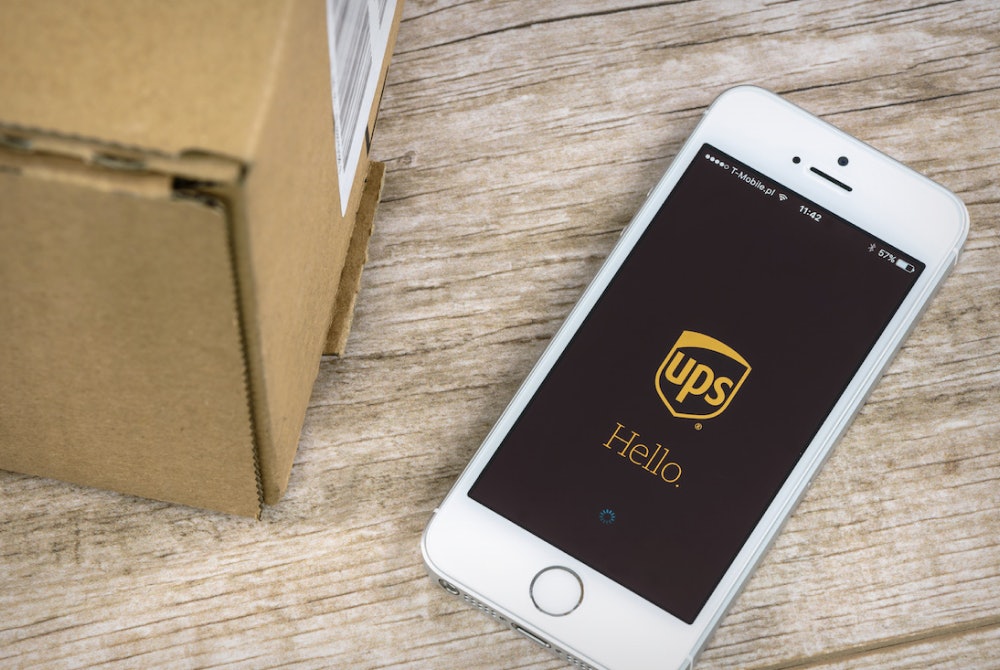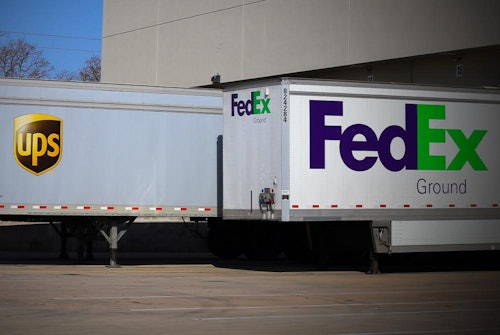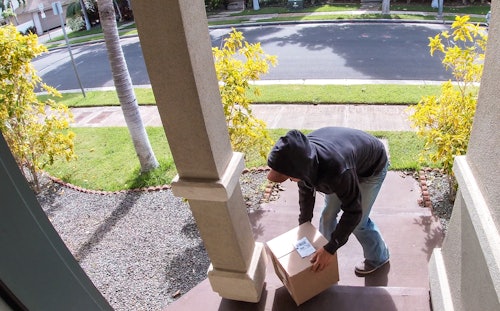UPS In Depth
United Parcel Service (UPS) is one of the world’s largest and most recognizable delivery service providers, with 543,000 employees worldwide and more than $84.6 billion in revenue in 2020. UPS delivers packages globally every day except Sunday—totaling around 24.7 million packages and documents a day, according to its 2020 annual report. Unfortunately, UPS scams have become more common, especially in the online shopping era, with scammers looking to cash in on customers’ trust in a well-known brand.
Along with its air, ground, domestic, international, commercial, and residential delivery services, UPS also established its retail outlet, the UPS Store, allowing customers to complete individual shipping orders, buy office supplies, and get other shipping-related services.
Common UPS Scams by Imposters
UPS scams can, unfortunately, target anyone, whether you’re an avid online shopper who frequently receives UPS packages or you use UPS as a business customer. These are the most common scams currently impacting the brand:
Email Phishing Scams
This widespread UPS scam involves an email informing you that you’ve missed a package delivery, and you need to click the link to schedule the delivery. The email could alternatively state that there is difficulty delivering the package or you need to update your delivery preferences.
You might see a UPS tracking number and the package’s shipping updates when you click the link and will be asked to enter your credit card details so the package can be delivered.
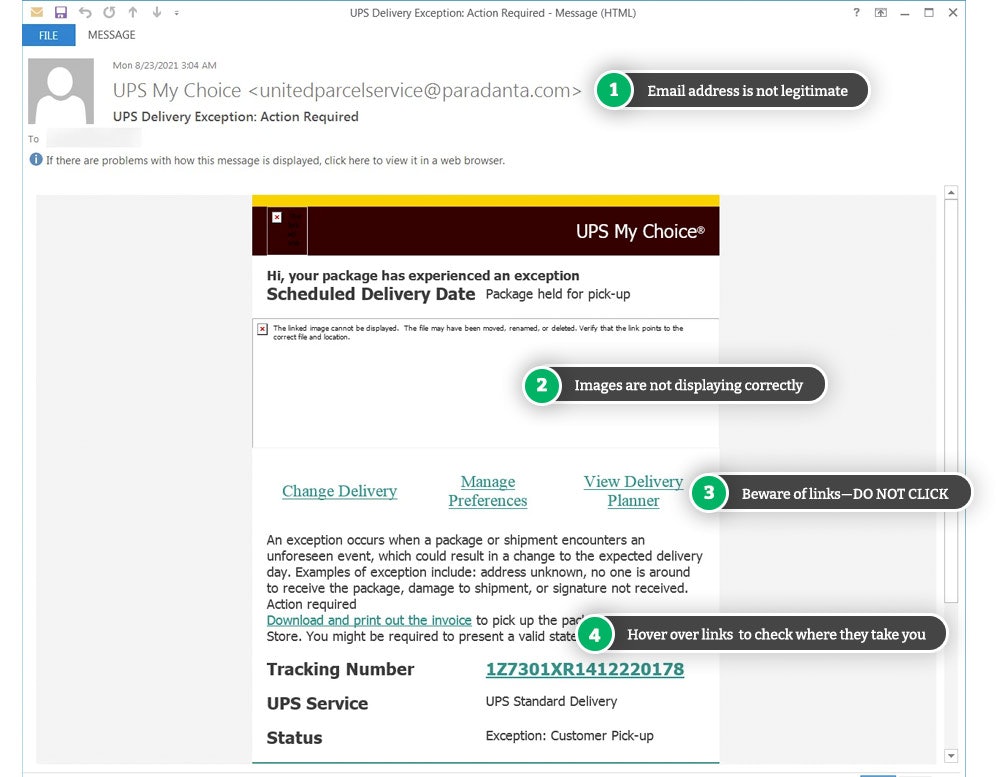
Survey Email
In this newer version of the email phishing UPS scam, you’ll receive an email with a subject line titled “Confirmation email.” When you open it, the body of the message will explain that you’ve qualified for an exclusive reward. To earn the offer, you’ll need to complete a short survey about your experiences with UPS.
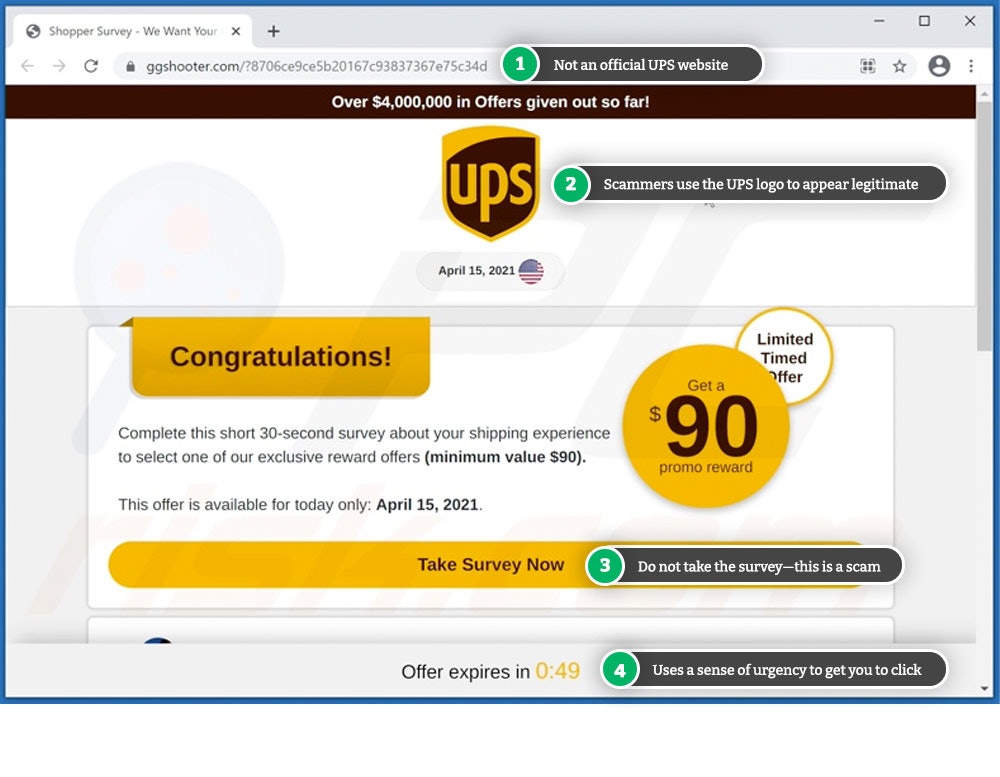
Unfortunately, when you click on the button to start the survey, you may expose your device to malware. Or the survey may capture your personal information and put it in the hands of scammers.
Package Delivery Scams
You’ll receive a text stating that you have an overdue package from UPS that’s waiting to be delivered. The text contains a link that you must click to get the box delivered. Clicking on the link will take you to an imposter UPS website that asks you to enter personal and financial details to schedule the delivery of the package (that doesn’t exist).
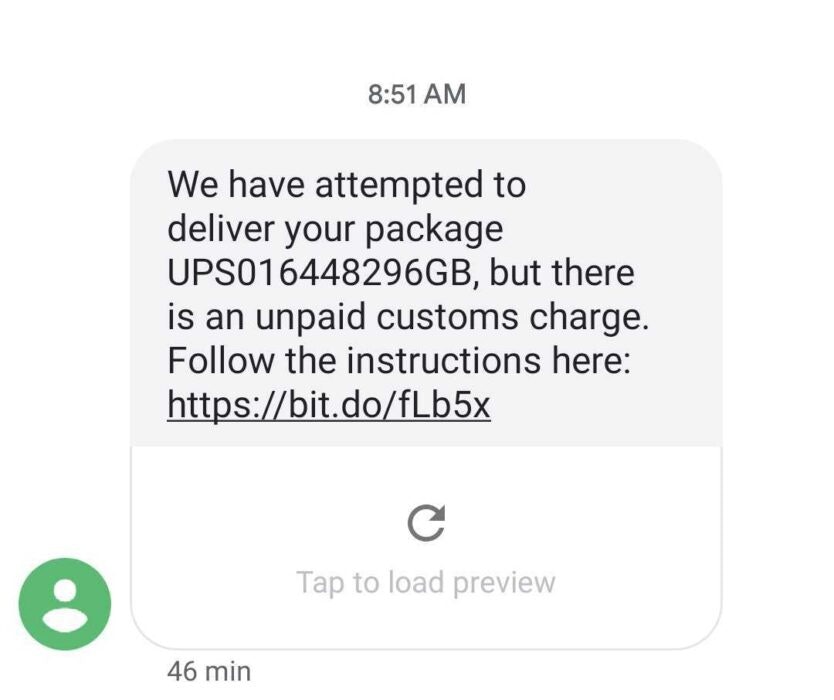
Clicking the link can also expose your device to malware that scammers can use to steal other information from your phone.
Phone Scams
You may receive a phone call from a UPS imposter claiming that you have a pending package and they need your personal information and/or payment to receive it. If you receive a voice mail and call back the number, you may have to pay high connection fees and expensive per-minute rates since the phone call typically comes from an overseas location.
Stolen UPS Accounts
Hackers can gain access to UPS accounts and make unauthorized charges. Once they steal an individual’s or company’s account number, they can use it to send mass mailings, ship fake checks, and move drugs and stolen products through the country.
Fraudulent checks or money orders
In this scam, you’ll receive an unexpected check or money order, typically by UPS Next Day Air service. This may be in response to an online advertisement or part of a fake job offer. You may also receive an email requesting to cash or deposit the money and return a portion of it using Western Union or another untraceable payment method. However, these checks usually end up being fraudulent.
Even if a bank initially believes the check to be legitimate, you may later find out that it is, in fact, a fake check, and the bank will remove it from your account.
Work-From-Home UPS Scams
Sometimes scammers use the UPS brand name to enhance their credibility when they’re trying to steal your money or information. This tends to be the case in work-from-home scams. If you’re hired to work as a payroll (or other checks) processor, a scammer will typically ask you to purchase check production software and will provide or ask you to obtain a UPS account number.
You’ll print the fraudulent checks and send them to people who advertised items for sale using UPS Next Day Air or other overnight delivery. The bank will later return the checks as fraudulent.
How to Beat UPS Scams
Scammers are well aware that more people than ever are purchasing items online and receiving shipments. If you are a regular online shopper, take the following steps to avoid theft of your money and personal information:
- Visit the UPS website directly to track packages.
- Avoid clicking on links in suspicious emails and texts.
- Watch your UPS account closely for unauthorized charges.
- Change your UPS account password frequently.
- Verify a caller’s first and last name and the call-back number if you receive a call from UPS, and verify the phone number is legitimate before proceeding with the call.
- Assume that any attempts to gather your personal information through email and texts are a scam, and follow up with UPS if you suspect fraudulent messages.
- Keep tabs on your receipts and UPS shipping information, so you know when to expect packages.
- Use caution when researching work-from-home opportunities, especially those that ask you to provide payment upfront or obtain a UPS account.
- Always check the email sender of a UPS email. Legitimate emails come from ups.com or upsemail.com.
- Ask for the tracking number of the package if a UPS representative contacts you regarding delivery.
- Watch for grammar and spelling errors in any emails you receive from UPS—these errors could indicate a scam.
It's important to verify links and contact details to beat imposters.
Protection Against UPS Scams
To protect yourself from UPS scams, reach out to UPS directly if you suspect fraudulent activity.
Report Fraudulent Messages to UPS
If you have received an email or text that you believe is fraudulent, you can report it to UPS at [email protected]. You can also forward messages directly to UPS at the same email address.
Do not change the original subject line or contents when forwarding the email, and don’t include any personal information. This will allow UPS to track the true origin of the message.
Report Fraudulent Activity on UPS Account
If you notice unauthorized activity on your UPS account, someone may have stolen your account number. Report the fraudulent charges to UPS immediately. UPS will work with you to investigate the fraud and take action on your behalf, including reversing the unauthorized charges.
Avoid Providing Personal Information
UPS has officially spoken out against scammers who offer package delivery services through unsolicited emails, mail, and phone calls, in exchange for:
- Payments
- Your personal information
- Your financial information
- Account numbers
- IDs
- Passwords
- Copies of invoices
The company will not ask for your personal information through any of these methods. If you have any questions about a message or call you’ve received, contact UPS directly.
Contact Your Financial Institution
UPS accepts no responsibility for costs or charges that occur as a result of fraudulent activity. If you lose money to a scammer impersonating UPS, you should immediately contact your financial institution, credit card company, or the payment service you used to transfer funds. If you used a debit or credit card, you must cancel that card and request a new one.
Report UPS Scam Messages
Report UPS scam messages to the Federal Trade Commission (FTC) to help stop the scammers. If you believe you have received a scam UPS text, forward it to 7726 (SPAM).
Scams Impacting UPS
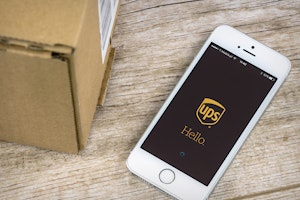
Get an Unexpected Delivery Alert? It May be a UPS Text Scam
Scammers are using SMS messages to send fake alerts to customers regarding a package delivery. Here's what to know about this scam.
Beware of the Parcel Tracking Text Scam
Delivery companies like FedEx, USPS, and UPS are being impersonated in text messages instructing recipients to visit a scam website—here's what you need to know.

Shipping Scams Use Fake Emails to Steal Your Information
Scammers are sending convincing emails, posing as shipping companies and online shopping sites, in order to collect your personal information.

FedEx Text Scam: Fake Delivery Alerts & Notifications
FedEx is warning customers of a fake text alert going around regarding an issue with a delivery. Learn how to avoid this tricky scam.
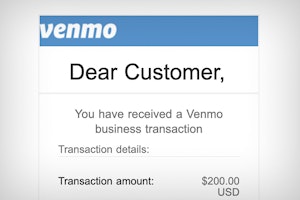
Selling on Facebook Marketplace? Beware of Fake Venmo Emails
Scammers are sending fake Venmo emails to Facebook Marketplace sellers in an attempt to steal login information and money.
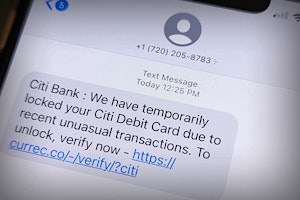
Citibank Text Message Scam: Locked Debit Card Alert Is Fake
If you've received a locked debit card text message from Citibank, it's likely a scam. Don't click on the link and delete the text message.
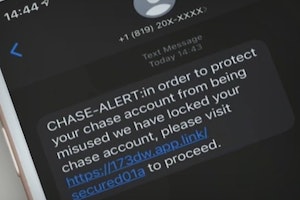
Real Chase Fraud Text Alert or Scam Message?
If you receive a text message from Chase Bank, don't click on any links or call the phone number listed—it could be a scam designed to steal your information and money.
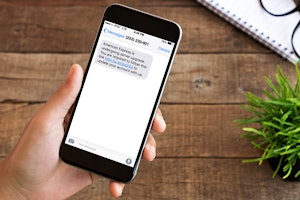
Amex Fraud Text Alert Scams: Spotting a Fraud
If you receive a text message from American Express, don't click on any links or call the phone number listed—it could be a scam designed to steal your information and money.

Citizens Bank Text: Scam or Real Message?
If you received a text message from Citizens Bank asking for personal information such as your password or login credentials, it may be from a scammer trying to steal your money.
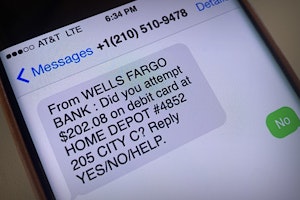
Wells Fargo Text Alert - Is It A Scam?
Dangerous text message scams are targeting Wells Fargo customers. These text message alerts for Zelle transactions or purchases with retailers are scams.
Guides To Protect Against Postal & Delivery Services Scams

5 Holiday Scams Waiting to Steal Your Joy This Season
Whether you donate to a charity this season or buy your family a new puppy, scammers are eagerly waiting to trick you into giving up your personal information in these holiday scams.

7 Easy & Effective Ways to Stop Porch Pirates
With online shopping on the rise, these 7 tips and tricks can help you stop porch pirates from stealing your packages this holiday season.

6 Common FedEx Scams Meant to Steal Your Info & Money
Stay cautious when you receive unexpected text messages or emails from FedEx—they could be fake messages being sent from scammers in an attempt to steal from you.

How to Get Verified on TikTok
Securing that little blue checkmark can mean brand collabs, sponsorship opportunities, or protecting your unique content from impersonators.

How to Tell if Nikes Are Fakes: From Tags to the Stitching
Nike is one of the biggest brands targeted by counterfeiters and scammers - be extra careful with Nike products from non-official retailers as you could end up with a fake
News About Postal & Delivery Services Scams

Urgent CDC Warning: Eye Drops Linked to 3 Deaths, Loss of Vision
The CDC is warning eye drops users of a rare bacterial infection from 2 brands of eye drops. The infection is resistant to antibiotics and has resulted in the loss of vision, loss of eyeballs and the death of 3 patients.

Banks May Refund More Zelle Scam Victims in 2023
Zelle scams have reached a serious volume. New reports suggest that banks are looking at new refund protections for customers in 2023.

Optus Data Breach - One of the Worst Cyberattacks in Australia
Hackers have gained access to 9.8 million customer records from Optus in Australia, exposing personal information such as driver licence, medicare and passport details.

Roe vs. Wade Overturned: Abortion Rights in Your State
Find out what the overturning of Roe vs. Wade means for abortion rights in your state.
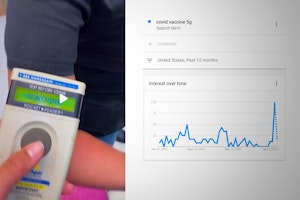
Searches for "COVID Vaccine 5G" Hit All-Time High, But Microchips Definitely Not in Vaccine
The number of people searching for the term "COVID vaccine 5G" on Google has just hit an all-time high, but there's one way to be sure that there are no microchips.
